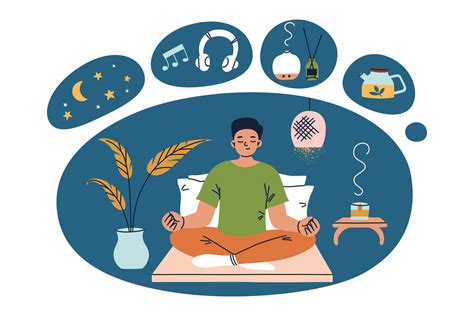How to improve deep sleep quality naturally?

Deep sleep, or slow-wave sleep (SWS), is a critical stage of the sleep cycle essential for physical restoration, memory consolidation, and immune system function. During this phase, your body repairs itself, growth hormone is released, and your brain processes and stores memories. A lack of quality deep sleep can lead to fatigue, impaired cognitive function, weakened immunity, and a higher risk of chronic health issues. Fortunately, several natural approaches can significantly enhance your deep sleep quality.
Understanding Deep Sleep and Its Importance
Deep sleep is one of the four stages of non-REM (NREM) sleep, characterized by slow brain waves (delta waves). It’s the most restorative part of your sleep cycle, playing a vital role in both physical and mental health. Adequate deep sleep helps in tissue repair, muscle growth, hormone regulation, and strengthening the immune system. It also consolidates memories and processes information, making it crucial for learning and cognitive function. Without enough deep sleep, you might feel groggy, have difficulty concentrating, and find your immune system compromised.

Establish a Consistent Sleep Schedule
One of the most powerful natural ways to improve deep sleep is to regulate your body’s internal clock, known as your circadian rhythm. Going to bed and waking up at the same time every day, even on weekends, helps synchronize this rhythm. Consistency reinforces your sleep-wake cycle, making it easier for your body to fall asleep and wake up naturally. Aim for 7-9 hours of sleep per night.
Avoid hitting the snooze button, as this can confuse your body’s natural sleep-wake signals. Instead, try to wake up at a consistent time and expose yourself to natural light as soon as possible.
Optimize Your Sleep Environment
Your bedroom should be a sanctuary for sleep. Creating the right environment can make a significant difference in your sleep quality. Focus on these three elements: dark, quiet, and cool.
- Darkness: Even small amounts of light can disrupt melatonin production. Use blackout curtains or an eye mask to ensure your room is as dark as possible.
- Quiet: Minimize noise distractions. Earplugs, a white noise machine, or even a fan can help mask disruptive sounds.
- Cool Temperature: Most experts recommend keeping your bedroom between 60-67°F (15-19°C) for optimal sleep. Your body’s core temperature naturally dips during sleep, and a cool room aids this process.
- Comfort: Invest in a comfortable mattress and pillows that support your body properly.

Dietary and Lifestyle Adjustments
Watch Your Intake
- Limit Caffeine and Alcohol: Both can interfere with deep sleep. Avoid caffeine at least 6-8 hours before bedtime and alcohol 3-4 hours prior, as it can fragment sleep later in the night.
- Avoid Heavy Meals Before Bed: Eating large, rich meals close to bedtime can lead to indigestion and discomfort, disrupting sleep. Opt for a light snack if you’re hungry.
- Consider Sleep-Promoting Foods: Foods rich in magnesium (leafy greens, nuts, seeds), tryptophan (turkey, chicken, eggs), and complex carbohydrates can support sleep. Herbal teas like chamomile or valerian root can also promote relaxation.
Incorporate Exercise
Regular physical activity is known to improve sleep quality, including deep sleep. Aim for at least 30 minutes of moderate exercise most days of the week. However, avoid intense workouts too close to bedtime (within 2-3 hours), as they can be stimulating.
Incorporate Relaxation Techniques
Stress and anxiety are major enemies of deep sleep. Implementing a relaxing routine before bed can signal to your body that it’s time to wind down.
- Mindfulness and Meditation: Short meditation sessions or deep breathing exercises can calm the mind and prepare your body for sleep.
- Warm Bath or Shower: The drop in body temperature after a warm bath can induce sleepiness.
- Gentle Yoga or Stretching: Light stretching can release tension from your muscles.
- Reading: Opt for a physical book instead of a screen.

Limit Screen Time Before Bed
Electronic devices emit blue light, which can suppress the production of melatonin, the hormone that regulates your sleep-wake cycle. The stimulating nature of engaging with screens also keeps your brain active. Aim to turn off all screens (phones, tablets, computers, TVs) at least 1-2 hours before you plan to sleep.
Instead, use this time for your chosen relaxation techniques, such as reading, listening to calming music, or journaling.
Conclusion
Improving deep sleep quality naturally is an attainable goal that can profoundly impact your overall health and well-being. By adopting consistent sleep habits, optimizing your sleep environment, making mindful dietary and lifestyle choices, and integrating relaxation techniques, you can foster the conditions your body needs for restorative deep sleep. Be patient and consistent with these changes, and you’ll likely experience the transformative benefits of truly deep and restful sleep.






